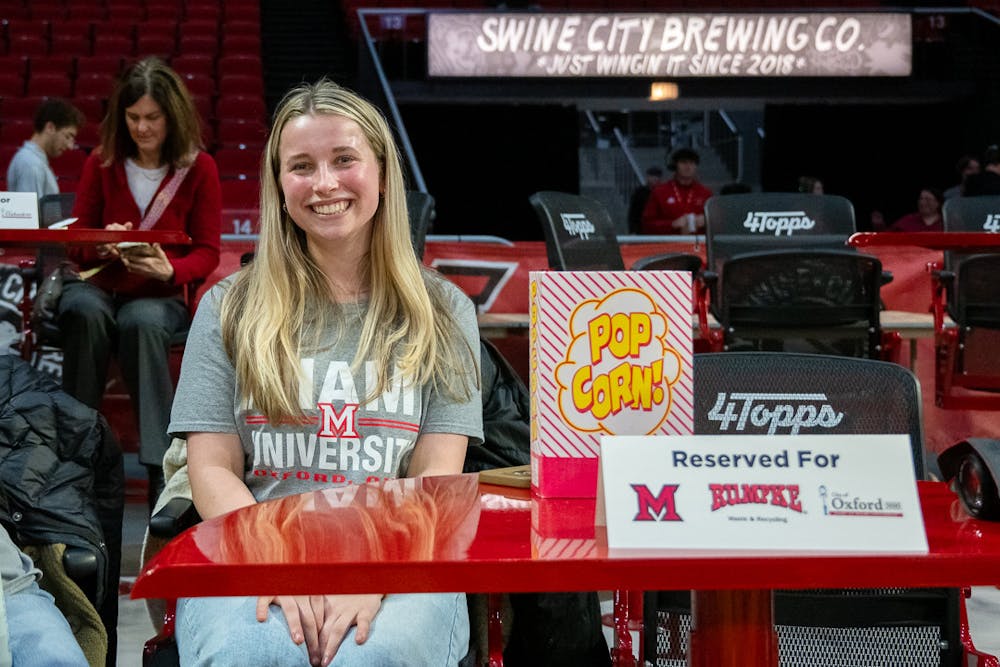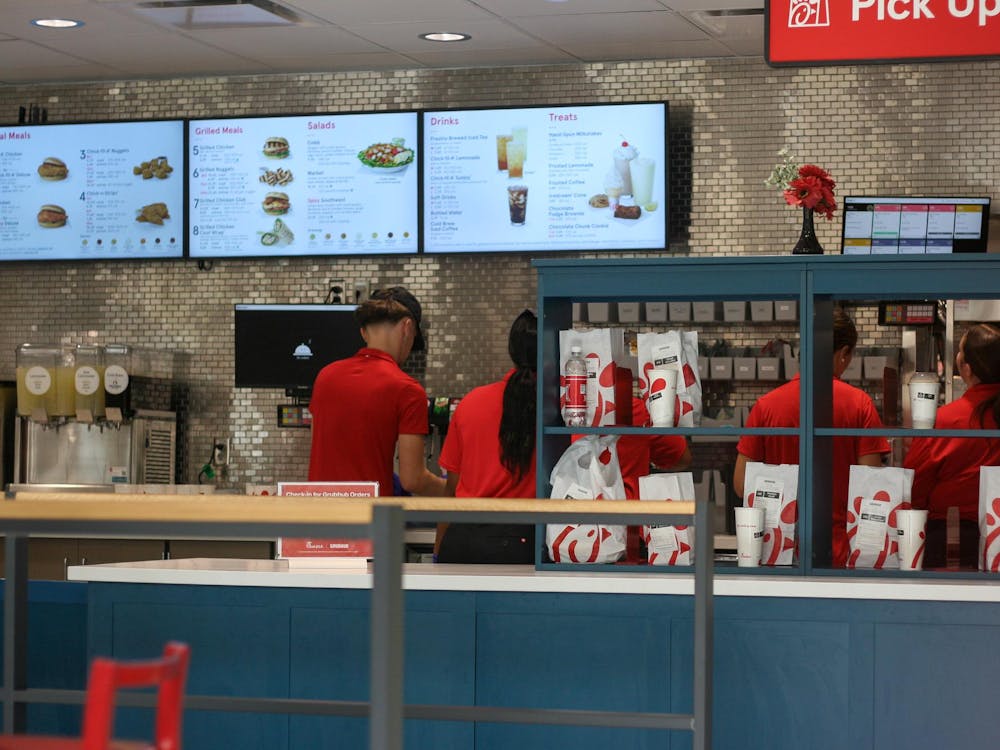From playing college softball to working at a zoo in Dayton, Miami University’s new sustainability engagement coordinator, Alex Miller, has truly done it all. However, Miller is now looking forward to what she can accomplish in this pioneering role.
Miller’s journey to Miami
Originally from the Dayton area, Miller recently moved back to Ohio after graduating from Hanover College with a Bachelor of Arts in environmental biology in May 2024. She is now in her third semester of pursuing a master of arts in biology from Miami’s Project Dragonfly program.
“I really like having the ability to choose my own adventure for my master’s program,” Miller said. “I was interested in [Project Dragonfly] because it is super affordable, relatively easy paced and is manageable while working full time.”
Landing the position
Miller came across the sustainability engagement coordinator position on Miami’s job board after setting alerts for new job openings during her first year in Project Dragonfly.
“I was looking into internships related to the logistical, environmental science side of conservation, and I stumbled across this position,” Miller said.
So, she applied, landed an interview with Olivia Herron, the director of sustainability at Miami, and got the job.
“After talking with Olivia, I immediately felt like all of the things that I had been doing had led up to me getting this position,” Miller said.
Miller’s responsibilities as sustainability engagement coordinator
Since the sustainability engagement coordinator position is a three-pronged partnership between the sustainability office, the Armstrong Student Center and the Office of ASPIRE, Miller’s day-to-day responsibilities tend to vary.
“[The position] has combined so many of my interests,” Miller said. “Having a job that doesn’t feel like a job is so amazing.”
Enjoy what you're reading?
Signup for our newsletter
Annabel DeChant, a political science master’s student at Miami and Americorps Service+ Student Assistant for Miami’s sustainability office, stressed the importance of Miller’s cross-functional position.
“Having somebody dedicated to student outreach and coordination will be really good so that students can play a bigger role in our sustainability efforts,” DeChant said.
Miller’s current projects
Miller is coordinating multiple projects around campus. From starting a partnership with The Lee and Rosemary Fisher Innovation College@Elm that helps small businesses become more sustainable, to updating the signage around the Oscar Sort AI composting systems in Armstrong, Miller is dedicating herself to the engagement aspect of her position.
She is particularly enthusiastic about her involvement with Miami’s participation in the nationwide Campus Race to Zero Waste per capita recycling competition.
“We send in weekly data on Miami’s standard recycling outputs after conducting waste audits, with some being held at events like basketball games,” Miller said.
The results from the first week of the competition will be posted on Friday, Feb. 14 to the scoreboard.
Miller is also helping Miami become a leader in this competition by advertising initiatives like Hefty ReNew, which helps to correctly sort hard-to-recycle plastics through the use of recognizable orange bags. She will be promoting this initiative at upcoming campus events, including the ‘I love you beary much’ event on Thursday, Feb. 13.
By educating students about initiatives like Hefty ReNew at popular campus events, Miller hopes to make sustainability a more accessible and collaborative goal at Miami.
“I think sustainability sometimes gets a bad rep since people think it’s too hard, it takes extra time and it’s too expensive to recycle the right way,” Miller said. “But having the accessibility and education for sustainable initiatives is better now than it has ever been before.”
Building on this goal of enhancing collaboration in Miami sustainability initiatives, Miller emphasized the importance of the “Sustainability Knowledge and Culture” survey President Gregory Crawford emailed to every Miami student on Thursday, Feb. 6.
“We’re collecting data on things that students want or need as well as educational gaps our student body has on sustainability initiatives on campus,” Miller said. “The more students we have caring about sustainability and getting involved with it, the better.”




